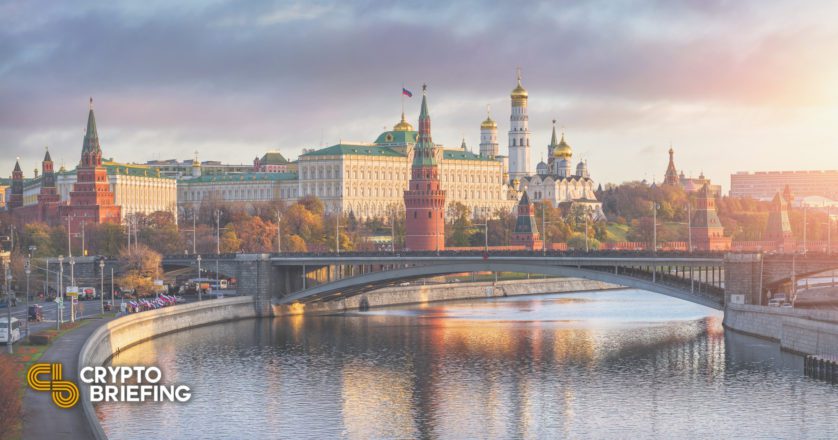Russian Banks Want to Ban Self-Custody Crypto Wallets
A major Russian bank association has reportedly proposed criminalizing holding crypto in self-custody wallets.

Key Takeaways
- According to a local news media report, the Association of Banks of Russia has proposed that lawmakers ban self-custody wallets.
- The association has also proposed criminalizing refusing to provide wallet private keys to authorized agencies.
- The suggested regulatory framework aims to mitigate “serious problems” with recovering and seizing crypto from debtors and criminals.
Share this article
The Association of Banks of Russia, a non-governmental organization representing the interest of the Russian banking and finance community, has reportedly suggested that lawmakers ban storing crypto outside of non-custodial wallets on centralized exchanges.
Russian Bankers Want to Outlaw Direct Crypto Ownership
Russia’s banking community doesn’t want users to hold their own crypto.
According to a Monday report by the local news agency Izvestia, the Association of Banks of Russia has reportedly proposed that lawmakers criminalize self-custody crypto wallets in order to mitigate “serious problems” with the recovery and seizure of cryptocurrencies from debtors and criminals. The news agency cites a letter that the Association has reportedly sent to the Bank of Russia, the Ministry of Finance, and the Federal Financial Monitoring Service of the Russian Federation for consideration.
Non-custodial or self-custody wallets give users direct and absolute ownership over their crypto assets, as opposed to custodial wallets where third parties like centralized exchanges are trusted to hold the user’s private keys. If properly secured, self-custody wallets make it impossible for anyone besides the owner to transfer the crypto assets within them.
According to the banking association’s vice president Anatoly Kozlachkov, the regulatory framework developed jointly with the Ministry of Internal Affairs originally proposed criminalizing self-custody. However, despite this approach seeming “more logical,” Kozlachkov added that the Association was now leaning towards a softer approach that would not criminalize the possession of crypto in self-custody wallets, but the refusal to provide the private keys to authorized bodies. If a debtor or a criminal is linked to their self-custody wallet, they would be given a choice: either surrender the private key or face punishment for hiding property in the form of digital assets, the document reportedly said.
Russia reportedly wants to create a “closed circuit” crypto-economy within its borders, which, according to the banking association, is impossible without effectuating an appropriate system for the foreclosure of assets held in non-custodial wallets. The country is currently evaluating two opposite approaches, one spearheaded by the Bank of Russia that proposes a blanket ban on all cryptocurrency use and mining, and another, favored by the Ministry of Finance, which seeks to regulate cryptocurrencies within the existing financial system.
Despite many calls to either ban cryptocurrencies or otherwise hinder their adoption by Russia’s banking community, the Russian government seems to favor the finance ministry’s more measured approach and is leaning toward regulating instead of banning the asset class.
Disclosure: At the time of writing, the author of this piece owned ETH and several other cryptocurrencies.
Share this article
